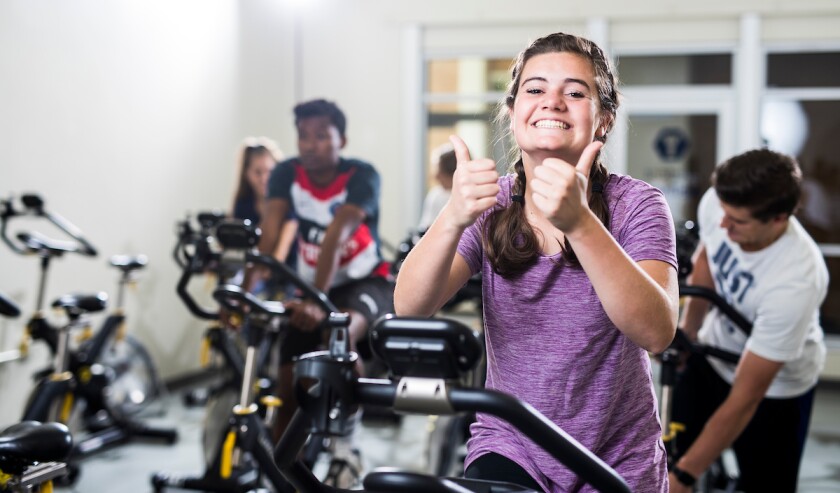Study: Exercise before fasting could lead to ketosis sooner

Photo supplied, BYU Photo
According to a study conducted at BYU, session of exercise at the beginning of a fast can help you reach ketosis three hours faster.For those searching for a sense of renewal after Thanksgiving and heading into the holiday season, fasting could be just the thing. According to a new BYU study, exercising before fasting could help maximize any internal benefits benefits.
For this study, published in the Journal of Medicine & Science in Sports & Exercise, BYU researchers had 20 adults fast twice for 36 hours, while still consuming water. Each of the participants began their fast after eating the same meal.
Participants started their first fast without exercising and began their second after a strenuous 45-50 minute treadmill workout. The participants completed hunger and mood assessments every two hours while fasting and recorded levels of B-hydroxybutyrate, a ketone-like chemical.
“We really wanted to see if we could change the metabolism during the fast through exercise, especially how quickly the body enters ketosis and makes ketones,” said BYU Ph.D. student Landon Deru in a press release.
Ketosis is a metabolic state that occurs in response to low glucose availability in the body, which is typically caused by eating minimal carbohydrates or fasting. In response to low glucose levels, the body begins breaking down fat within the body which produces ketones. Ketones act as an energy source for the brain and heart and can be helpful in fighting off certain diseases.
According to the study, when participants fasted after exercising they were able to reach ketosis three and a half hours earlier than when they did not exercise before fasting. Additionally, they produced 43% more B-hydroxybutyrate.
When participants fasted without exercising, they did not reach ketosis until 20 to 24 hours into fasting. The researchers theorize that exercising before fasting causes the body to burn through much of the stored glucose, creating a faster transition into ketosis.
“For me, the toughest time for fasting is that period between 20 and 24 hours, so if I can do something to stop fasting before 24 hours and get the same health outcomes, that’s beneficial,” Bruce Bailey, a BYU exercise science professor and study co-author, said in a press release. “Or if I do fast for my usual 24 hours, but start with exercise, I’ll get even more benefits.”
Bailey noted that carb-loading, or eating a particularly large meal before fasting, skewed the positive effect of exercising before fasting and could put prevent the body form going into ketosis for days due to the surplus of glucose. He also stated that certain individuals, like those with Type 1 diabetes, should not fast and that no one should fast all the time.
The study did not establish how much, or what type of, exercise every person should engage in to reap the benefits of exercising before fasting. However, researchers believe that the more calories burned, the better.
“You can get a pretty good estimation of how many calories you’re burning in most exercises, and the more carbohydrates you burn off (without overdoing it or injuring yourself), the better you set the stage for starting ketosis early in your fast,” Deru said.



